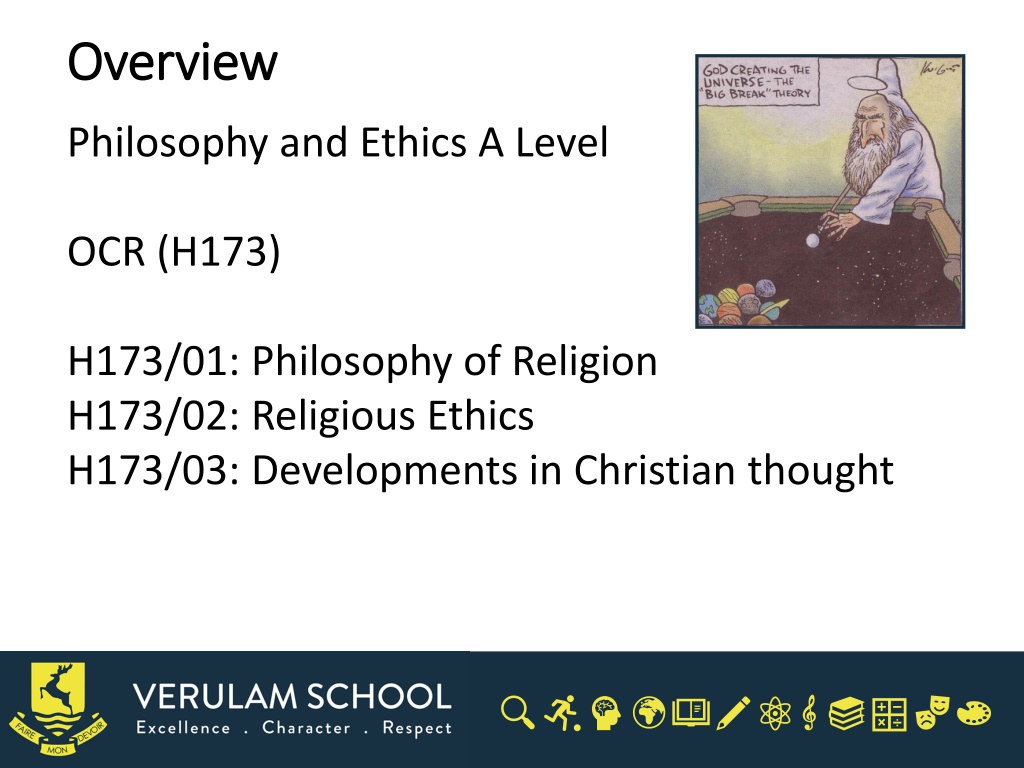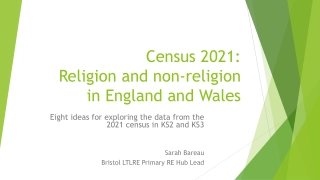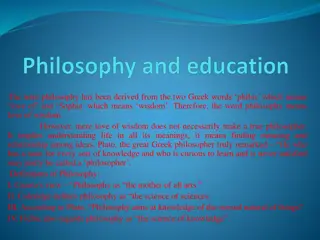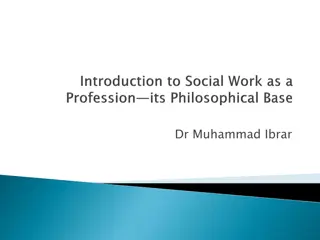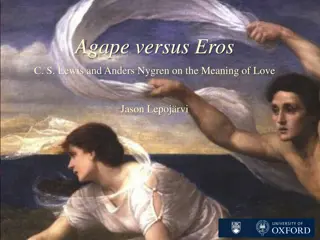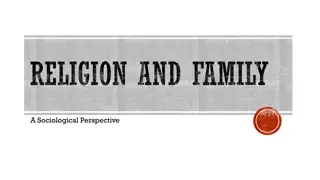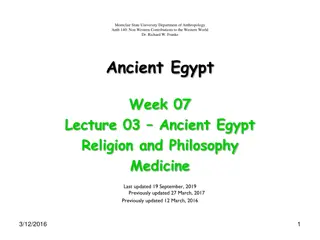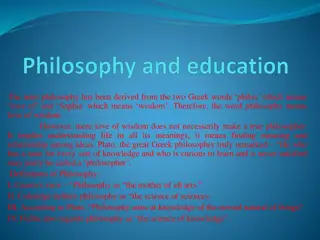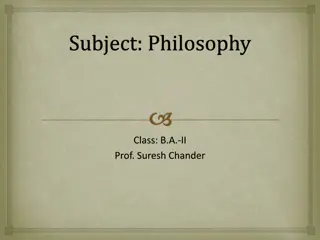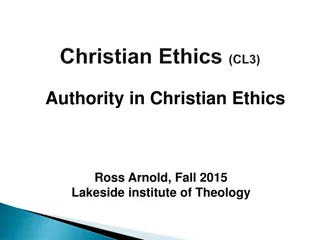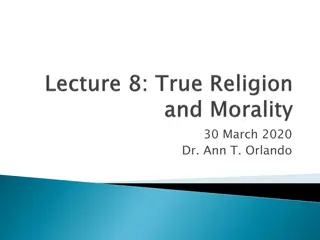Philosophy and Ethics A Level Overview: Religion, Ethics, and Christian Thought
This is an A Level overview of Philosophy and Ethics, focusing on topics such as Philosophy of Religion, Religious Ethics, and Developments in Christian thought. Students will explore concepts like the existence of God, moral issues, ethics, and more, challenging their intellectual capabilities and developing critical thinking skills essential for various careers. The course covers a wide range of subjects, including discussing ideas, logical argumentation, ethical principles, and the assessment involves essay-based exams.
Uploaded on Oct 04, 2024 | 0 Views
Download Presentation

Please find below an Image/Link to download the presentation.
The content on the website is provided AS IS for your information and personal use only. It may not be sold, licensed, or shared on other websites without obtaining consent from the author. Download presentation by click this link. If you encounter any issues during the download, it is possible that the publisher has removed the file from their server.
E N D
Presentation Transcript
Overview Overview Philosophy and Ethics A Level OCR (H173) H173/01: Philosophy of Religion H173/02: Religious Ethics H173/03: Developments in Christian thought
What will you learn? What will you learn? *Philosophy and Ethics offers you an interesting and intellectually challenging A level. *It helps you to develop an understanding of spiritual, moral, ethical, social and cultural issues. *The valuable skills of logical argument and critical evaluation are also developed and can be transferred to other areas of study. *It is also a useful stepping stone to many careers because it helps you to understand what people believe and how it affects their lives.
What will you learn? What will you learn? Discussing - giving your own ideas and opinions. Leading to Listening to others! Arguing from different points of view, both verbally and using presentation skills. Remembering key words and meanings. Critically analysing of different views. Effective reading of key texts. Leading to Writing extended essays about moral issues using facts and responses. Independent study being able to work on your own Keen enquiring mind leading to exploring ideas in real life! Time management this becomes an essential skill
What will you learn? What will you learn? Christianity and the philosophy of religion *Does God exist? *Life and Death *Experience and religion *Miracles *Nature of God *Challenge of Science *Religious Language *Evil *Human Nature *Person of Jesus Christianity and religious ethics *Meta-Ethics *Conscience *Freewill and determinism *Virtue ethics *Natural law *Situation Ethics *Moral principles *Moral actions virginity), embryo research, euthanasia, abortion, capital punishment) *Applied ethics topics (including: environmental issues, business ethics, sexual identity (marriage, sex,
What is the course really like? What is the course really like? Seb, Stanley and Lois are current year 12 students. They are going to give their view! What are lessons like? How much additional study is required? What support do you get? What do you like most about the subject? What have you found most interesting to learn?
How are you assessed? How are you assessed? This is an essay based subject. The final assessment is 3 exam papers all are 2 hours long. Each paper has 3 essays in it. Every subject has regular assessment points throughout the academic year. On the whole, students will write one essay each time they complete a topic.
What makes the course so good? What makes the course so good? c.25 P&E students at Verulam (we have approximately a ratio of 1:6 boys to girls studying the subject which is around double the ratio in the sixth form overall) Been taught at university for over 700 years Oxford and Cambridge consider it a good A Level and put it in their top level list of subjects On the Russell Group preferred list 20% of students accepted to Oxford to study Maths have an A Level in P&E (that s more than those with A Levels in Economics, Physics and Business) Considered more demanding than English and Geography RESULTS: 33% of girls and 20% of boys achieved A* - B in 2019 c.20% of students went on to study the subject at degree level in 2019 100% pass rate since 2014
What makes the course so good? What makes the course so good? Studying P&E at A Level can provide invaluable life skills, offer opportunities to further education and enhance careers. SENA LAW STUDENT P&E provides an excellent platform for debate, which is a key skill that has helped me study law" SHERMEEN PPE STUDENT "Through P&E, I learned to build and interrogate arguments and how to question and evaluate narratives" MO FIREFIGHTER "Studying P&E gave me a good understanding of different religions and cultures, making me a better firefighter" ARUN JUNIOR DOCTOR "Understanding people's faiths and lifestyles is so important for my job" SCULLY RADIO DJ "To understand the world, you need to understand religion. Religion is so intertwined in our history, society and culture"
What are your future options? What are your future options? But I don t want to be a vicar! According to AGCAS - the Association of Graduate Careers Advisory Service. RS/ Theology/Philosophy & Ethics students go into a wide range of careers. However they, and employers, feel that it particularly prepares students for the following careers: Legal sector Media sector Financial services sector Politics Publishing sector Medicine Voluntary sector Social work Journalism Social & pastoral care Education Community work
Further information Further information More information about the course can be found on our website but also in person form Ms O Kelly If you have any more questions please either ask Ms O Kelly or e-mail the admin address on the website
